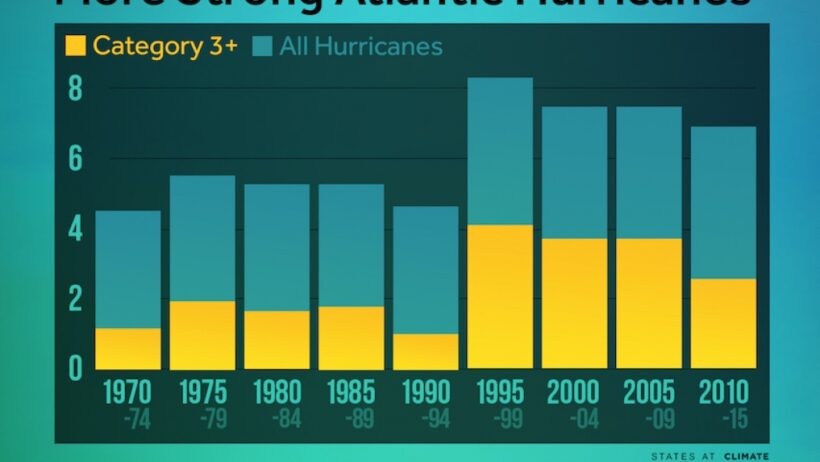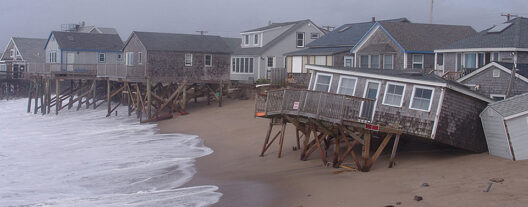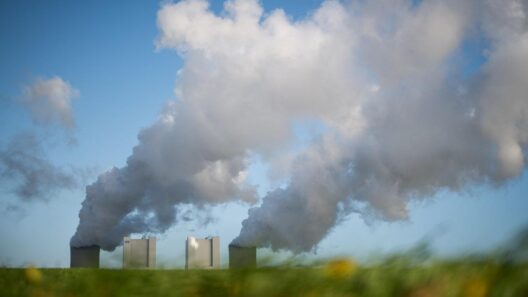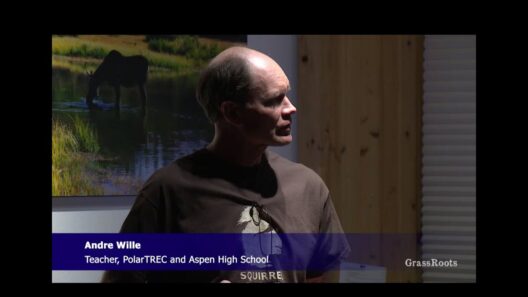As one delves into the intricacies of climate change and its impact on natural phenomena, few subjects evoke as much intrigue and concern as the relationship between climate change and hurricanes. The question, “Does climate change affect hurricanes?” beckons not just scientific scrutiny, but an imperative social dialogue as well. This article endeavors to examine the multifaceted nexus between a warming planet and the ferocity of storms that batter coastlines and disrupt lives.
To comprehend the connection, one must first unravel the mechanisms that drive hurricanes. These atmospheric giants are born from warm ocean waters, which provide the necessary energy to spawn and sustain their formidable winds and heavy rains. Traditionally, water temperatures exceeding 26 degrees Celsius have been identified as the critical threshold for hurricane formation. As human-induced climate change escalates global temperatures, the oceans also warm, leading to an increase in hurricane intensity and frequency.
The correlation between elevated sea surface temperatures and the potency of hurricanes is well-documented in numerous scientific studies. In a warmer world, we are witnessing an alarming trend: storms are not merely becoming more voluminous, but they are also gaining in strength. The past few decades have ushered in a wave of Category 4 and 5 hurricanes, which are now much more common in tropical regions than in previous generations.
One must also consider the concept of ‘rapid intensification.’ This phenomenon, where a storm quickly escalates to a higher category, has become increasingly frequent in recent years. A slower hurricane may seem manageable, but rapid intensification can lead to devastating consequences, catching communities unprepared and leading to catastrophic loss of life and property. The advent of climate change has altered the dynamics of these storms, allowing them to gain strength more quickly and with less warning.
Moreover, climate change does not solely influence hurricanes through warmer ocean temperatures. Changes in atmospheric conditions, including wind shear and humidity levels, also play pivotal roles in storm development. Warmer air has the capacity to hold more moisture, which intensifies the precipitation associated with hurricanes. The echoes of past storms like Harvey and Maria serve as poignant reminders of the staggering rainfall that can accompany these systems, exacerbating flooding and destruction across vast regions.
Critics may argue that hurricanes have always been a part of Earth’s climatic rhythm, suggesting that historic records indicate periods of increased storm activity occurring long before industrialization. While it is true that the planet’s climate has ebbed and flowed over millennia, the unprecedented speed and scale of current warming challenge this standpoint. Data conclusively shows that greenhouse gas emissions are driving temperatures higher than natural variations alone could explain.
Another lens through which to view this crucial issue is vulnerability. The most deleterious impacts of hurricanes tend to be felt by marginalized communities. Social inequities exacerbate the repercussions of natural disasters, where economically disadvantaged populations often lack the resources or infrastructure to effectively prepare for or recover from storms. In this context, the question is not only whether climate change affects hurricanes, but also how these changes magnify existing social injustices.
The more immediate crises created by increasingly severe weather events have far-reaching effects on local economies, public health, and even mental well-being. The damage wrought by extreme storms leads to loss of housing, displacement, and long-term economic instability, particularly in communities that are ill-equipped to withstand such shocks.
Accelerating global temperatures demand commensurate action. Mitigation strategies, including curbing emissions through renewable energy sources, enhancing energy efficiency, and promoting sustainable land use, stand as paramount necessities. An informed populace must engage with these pressing issues, advocating for adaptive frameworks that equip communities to weather the tempestuous fallout from climate change.
Yet the dialogue must extend beyond adaptation strategies. It is imperative to cultivate resilience among populations vulnerable to hurricanes. Effective emergency response plans, bolstered infrastructure, and investment in community preparedness initiatives can help buffer against the increasingly catastrophic impacts of these storms. A shift in collective consciousness ought to embrace the notion that proactively addressing climate change is not merely a political imperative, but a moral one as well.
While scientific consensus indicates that climate change is indeed augmenting the intensity of hurricanes, it is also a clarion call for societal reflection. Resilience, adaptation, and mitigation are pathways through which we can confront the challenges posed by a warming climate. Acknowledging the intricate relationship between hurricanes and climate change not only piques curiosity; it compels action, fostering a commitment to safeguard future generations from the tumult wrought by our evolving planet.
Ultimately, one enduring truth prevails: as the world warms, the storms of tomorrow will reflect the choices made today. Embracing the call to change, to educate, and to advocate will empower us not only to comprehend this seemingly unending cycle of hurricanes, but to confront it with informed audacity. The narrative of climate change and hurricanes is far from complete; it is a story in the making, and each of us holds a pen poised to craft the chapters that lie ahead.








